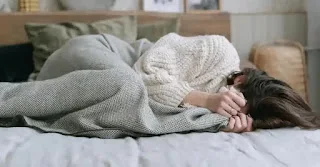Does Sleep Affect Depression?
Sleep and depression are closely linked. Let’s explore how poor sleep can worsen depression and why improving sleep habits can boost mental health.
How Sleep Affects Depression
- Too little or too much sleep can trigger depressive symptoms
- Sleep problems like insomnia can make depression worse
- Good sleep helps regulate mood and stress levels
Real-Life Example
Arjun, 27, shared: “I didn’t realise how bad sleep was making my depression until I started focusing on a regular bedtime routine.”
Tips for Better Sleep and Mental Health
- Go to bed and wake up at the same time each day
- Limit screen time before bed
- Keep your bedroom dark, cool, and comfortable
- Talk to your doctor if sleep problems persist
FAQs
- Can depression cause sleep problems? Yes – insomnia and oversleeping are common in depression.
- Will better sleep cure depression? Not always, but it can ease symptoms and help other treatments work better.
Conclusion
Sleep and depression go hand in hand. Take small steps to improve your sleep, and talk to a professional for extra support if you need it.
For more on emotional wellness, visit Emotional Health and Postpartum Body Changes.
For trusted resources, see:
Rest well – your mind and body deserve it!

